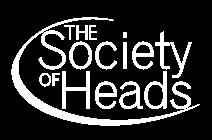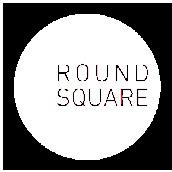
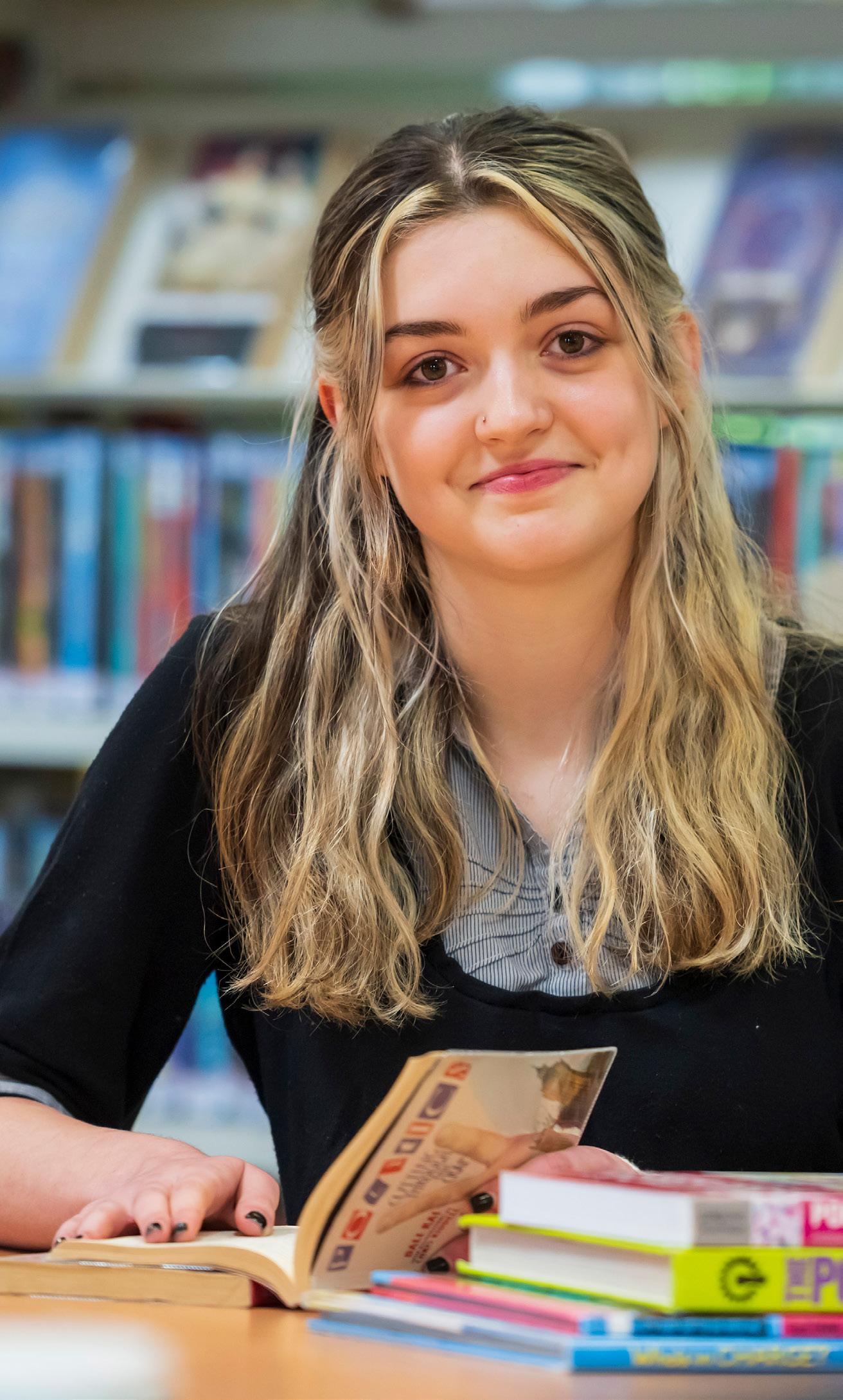




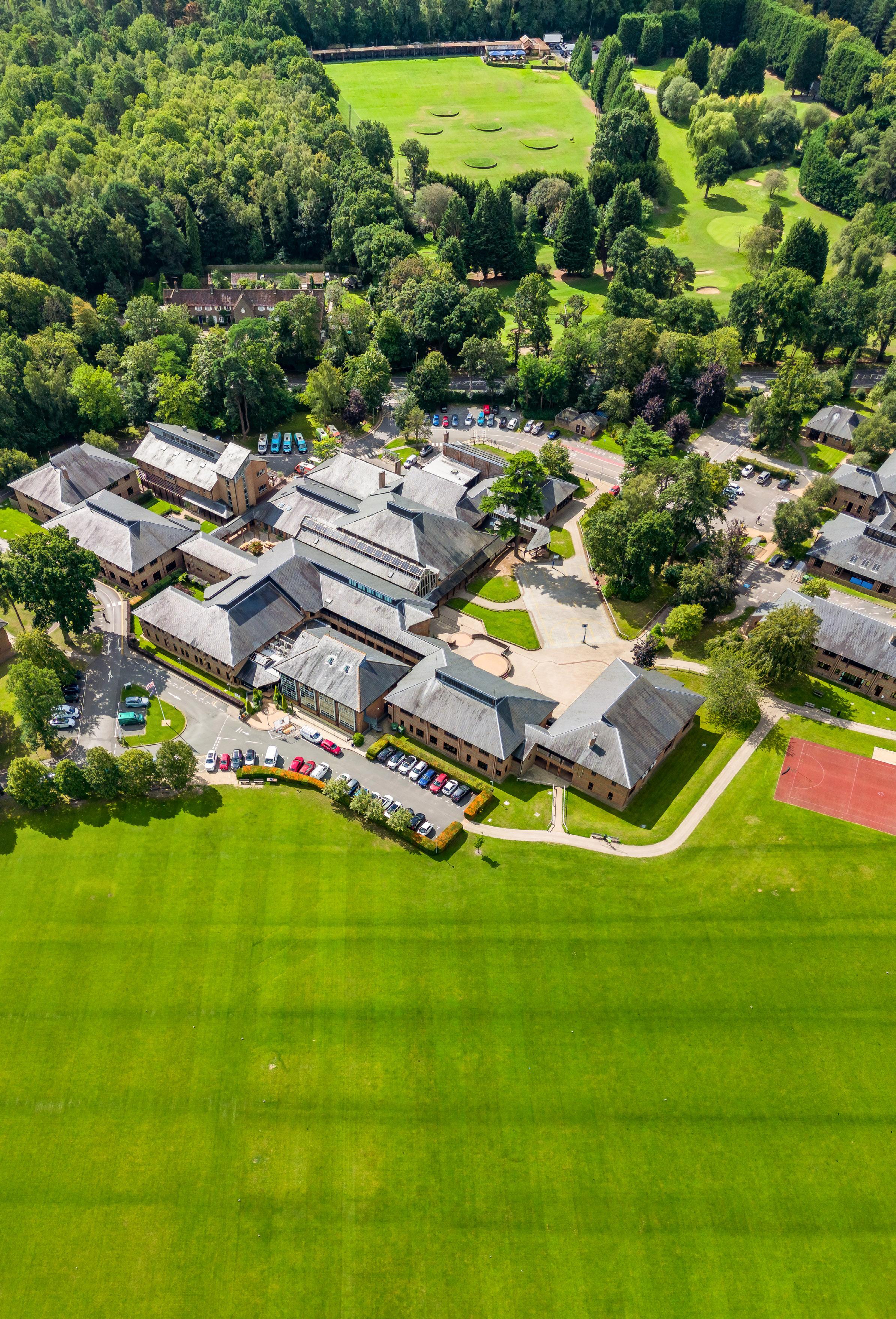
LVS Ascot is set in 26 acres of beautiful parkland, with everything on one campus, in a wooded setting. Our rural position is only a thirtyminute drive from Heathrow airport and close by to major motorways, giving easy access to other London airports. We also operate a fleet of minibuses to bring students to and from the school. Click on the buttons below to find out more.
Our Sixth Form offers students a combination of the best of a school and the best of a college.
We foster a sense of independence in an environment of support. Students are encouraged to develop as individuals whilst being part of a caring, supportive and tremendously positive community.
We have an incredible range of courses that not only feature the subjects you may expect but also many that are rarely available outside of a large college. Teaching groups are significant enough to be exciting, yet small enough to ensure one-to-one attention. Rather than constant testing, there is constant learning. Rather than being results driven we are progress driven. The outcome is happy, confident students who will ultimately achieve higher grades than they would have elsewhere.

We would be delighted to show you around our fabulous facilities and to introduce you to our wonderful teachers and incredible students. You will love the atmosphere of friendship and co-operation, of achievement and ambition, but most of all, of excitement and happiness.


In the LVS Ascot Sixth Form our aim is to offer the best of a college with the best of school.
Each student has an experienced tutor who will be their focal point throughout their two years. The tutor will get to know the student very quickly and be there to advise, encourage and help.
The school day is 8.30am until 4pm. There is a tutor group registration every morning and a whole school assembly. Each week there is also a Sixth Form assembly and a life-learning lesson.
Independence comes from encouraging students to take responsibility for their own learning. There is support from the teachers, but from the start of Year 12 students will be able to develop their own study and working style. A free period is a free period, and indeed students can sit in the Common Room, go off site to the local shop, visit our new gym or chat with friends.
However, students quickly realise that free periods are mainly time to be used for study and they can work in one of the three exclusive areas for Sixth Form study. Any student that develops this attitude by themselves, and they all do, will be far more productive than simply timetabling them to sit in a study area.
There are regular social events for the Sixth Form where the students form a committee and organise the venue, menu and entertainment themselves. The first of the year is in late September where Year 12 and Year 13 have an evening together.
Students take a very active part in the school and prefects are closely involved in many departments’ activities such as art, drama and sport. They also lead in charity events and co-ordinate house teams in the many inter-house competitions.
The wellbeing of our Sixth Form students is paramount to us. By not solely concentrating on academic outcomes, we find that those academic outcomes improve dramatically.
A happy student is a successful student. This is at the heart of everything we do.
What our Sixth Form students say
The world of work is changing and we are one of the few Sixth Forms that encourages all our students to look at as many options as possible. There are many graduates that struggle to find a job in the subject, or at the level they studied at university.
Every student will complete a UCAS application. Every student will have a university offer. However, not every student should go to university.
We use Unifrog, possibly the most useful application that any Sixth Form student will ever use. It gives careers, apprenticeship and university advice on one easy to use site. Students regularly use Unifrog in their tutor sessions and it is incredibly helpful.
In Year 12 students visit Royal Holloway University for a tour, a lecture and the opportunity to ask questions of staff and students. Our on-site careers adviser is available throughout the year for advice and our tutors are all experienced in university applications.
Predicted grades are given to students in May of Year 12 and on their return in September we encourage the UCAS application to be sent off as soon as possible. It should certainly be no later than the end of November.
LVS Ascot students have a 100% success rate in being offered a university place. However, as previously mentioned, there are many alternatives out there. We are a school that opens minds to different directions, and often better routes to achieving success and ambitions.
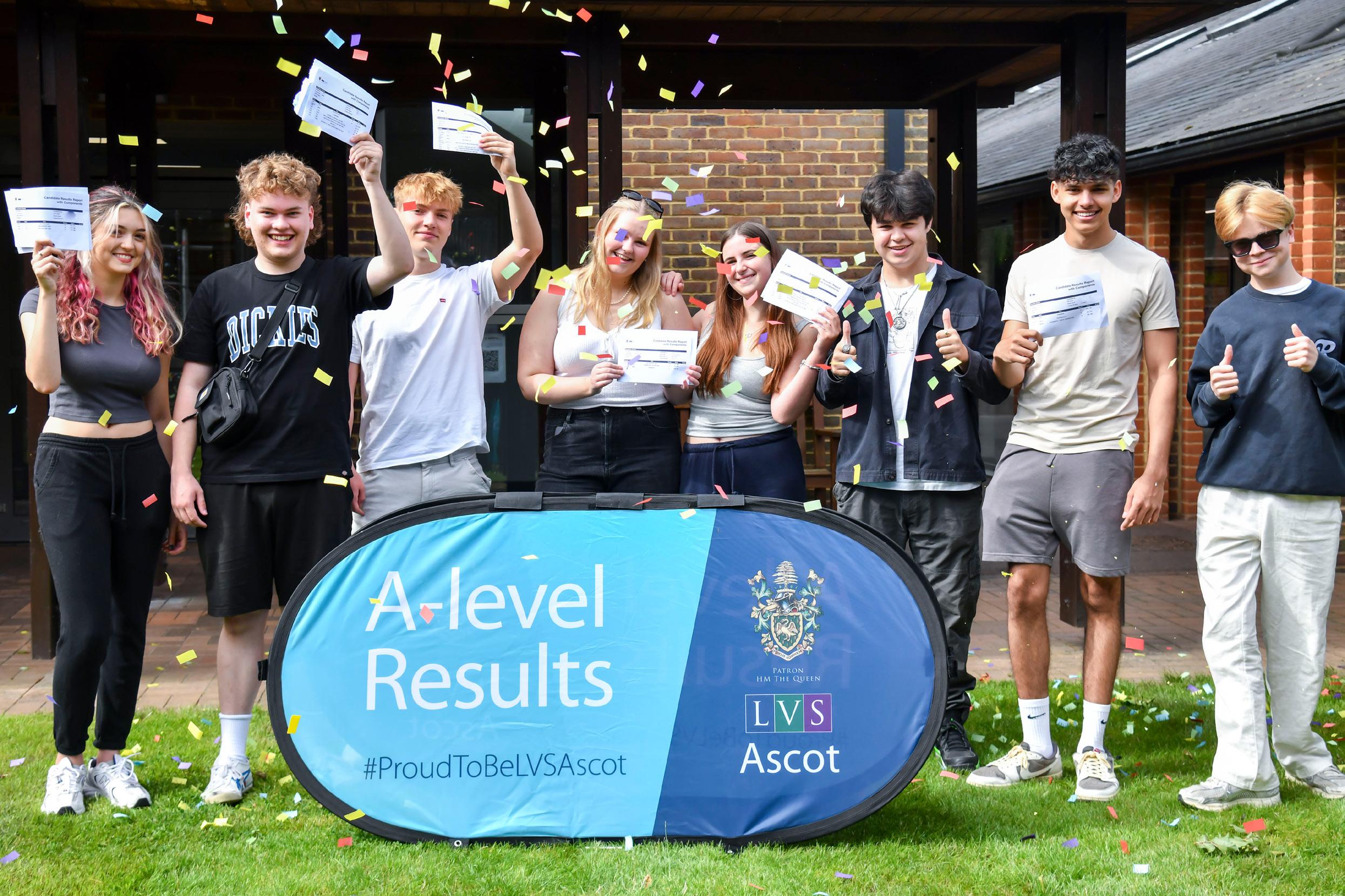
Our Extended Project Qualification replicates a university dissertation and gives our students a chance to express themselves outside of the traditional syllabus.
The EPQ has a UCAS tariff equal to half an A-level and will benefit any university application that has specific subject-result requirements, including those to the Russell Group. The EPQ also offers a refreshing diversion to our academic curriculum.
The output of the student’s project is only part of the story. Students are assessed on their approach to it, how they narrow down their investigation following their initial research, sticking to their plan and finally presenting their points.
All students have a member of staff as a supervisor, carefully picked for an interest in the student’s topic, to guide them along the path to success.
Some past topics have included:
• How Social Media damages young teens perception of happiness within their own skin
• To what extent increased Chinese investment into Africa is a mutually beneficial strategy or a reflection of neo-colonialism?
• Are domestic animals more susceptible to respiratory problems than wild animals?
Find out more about EPQ

LVS Ascot are delighted to announce that UpLearn is now available for our A-Level students of Maths, Physics, Chemistry, Biology, Economics and Psychology. In an exciting addition to our experienced classroom teachers, students will have access to assignments, exam practice, tests and revision material. However, most impressive of all is a link to live on-line tutoring. This is all included in our school fees and it has the potential to dramatically improve students’ grades.


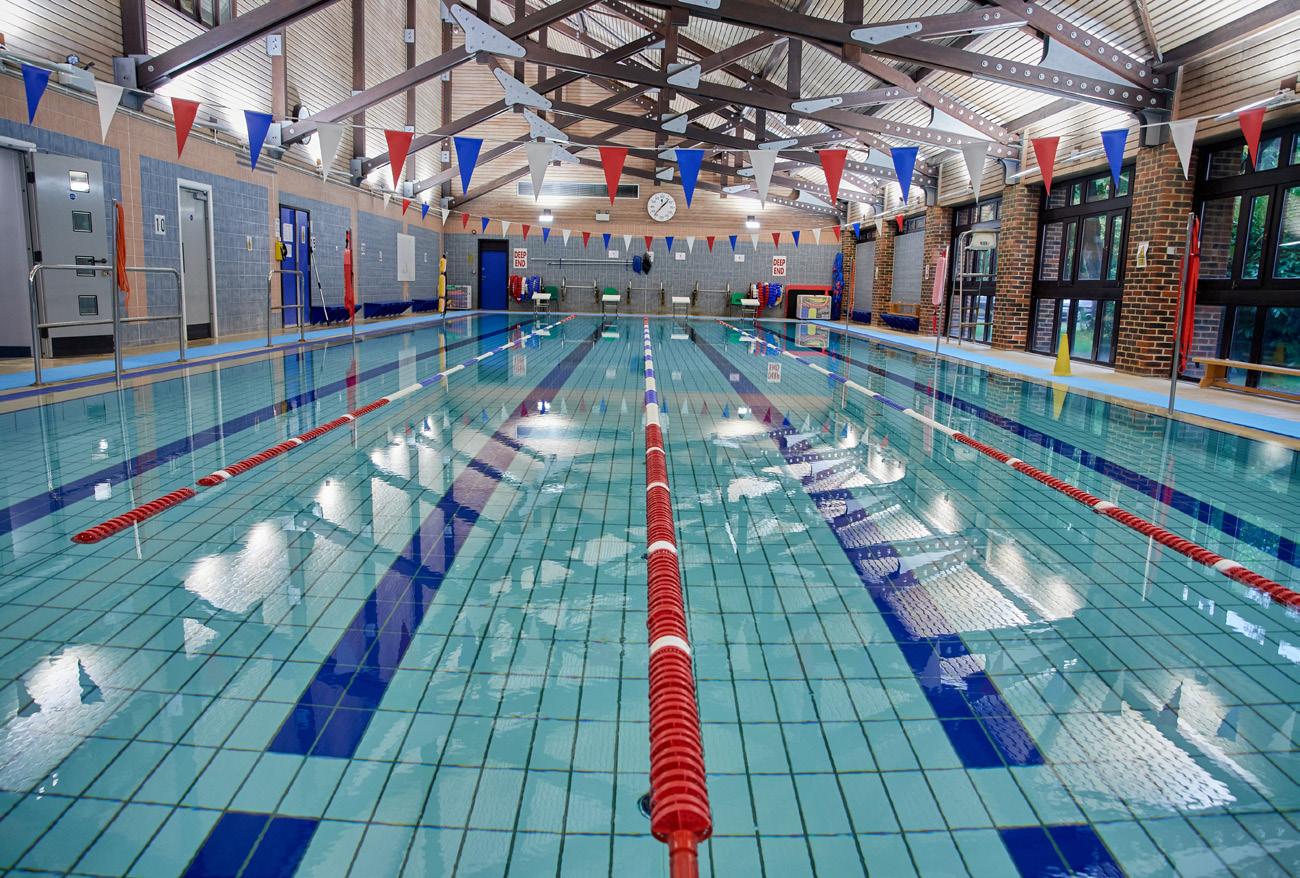
LVS Ascot provides a Sixth Form environment that fosters a sense of opportunity and excitement. We offer fantastic activities and sports that will add to our students’ lives.
In addition to the traditional team sports such as rugby, hockey, football and cricket (all available for boys and girls), there is a fantastic new gym that is available during the week for the students to use in a free period or after school.
Our students have opportunities to help out in a primary school, a care home or an RSPCA centre and we also work with Bracknell Borough on an Eco-volunteering scheme.
Each Wednesday, coaches take students to Bracknell Leisure centre where they have full use of all the facilities. There is also a bus to a climbing centre, golf is available across the road, and we have a film club too.
LVS Ascot is always looking to keep its provision relevant to the students. If there is student demand for an activity, we can usually accommodate it. We want to ensure that there is something for everyone. We want LVS Ascot students to lead interesting, exciting and fulfilling lives.
View all of our co-curricular activities
LVS Ascot encourages all students to push themselves in developing leadership and becoming pro-active.
For some this will be running for an elected office, such as Head Boy or Girl. For others they will be a Form Rep or House Captain. Some will want to be a prefect with a specific area of responsibility, such as Performing Arts, Diversity or Sport, whilst some will lead a one-off event such as a cake sale. Opportunity is available for everyone and one of the most fulfilling moments for many students is when they address an audience. This can be a small tutor group, the entire Sixth Form or nearly a thousand people in a whole school assembly.

LVS Ascot constantly reviews the curriculum that we offer to make sure that all students can follow courses that are relevant, useful, contemporary and will lead to success.
We offer a wide range of A Level and BTEC qualifications along with vocational subjects such as the Leiths cookery course. We also offer courses for international students, including the NCUK qualification which guarantees entry to UK universities upon successful completion. Advice on subject choices is always only a phone call away and we will be delighted to help students build a perfect tailor-made timetable for themselves.


These are clearly a vital part of any course at Sixth Form level. However, at LVS Ascot we do not believe that they should be the constant driver of a student’s life. Exams are only scheduled when there has been a significant amount of time for academic input and whilst data is a useful tool, it is not seen as a panacea. Each student is an individual and with our small teaching groups, teachers see the young person, not a set of data on legs. Teachers use results and data to adjust their delivery rather than carrying out another test simply to produce
more numbers. Time is spent with the students teaching and our experienced teachers know what they are doing.
Probably more important are the attitudinal tests and the Cambridge Wellbeing survey that is carried out every year. This allows students to express their feelings, emotions, frustrations and aspirations towards their experience. It allows LVS Ascot to reflect and adjust. It really works in ensuring that students are at the forefront of everything that we do.
Our Sixth Form subject guide A guide to choosing courses International student courses
Level: A level / Examination board: EDUCAS
Specification: Art & Design Three Dimensional Design

This is a linear A level course undertaken over two years.
In Year 12 students will be required to develop and expand their knowledge and understanding of a wide range of materials; including modern and smart materials. This also includes the manufacturing processes that link to the different materials groups. Students will also need to acquire a working knowledge of health and safety procedures and relevant legislation. A range of products will be designed and manufactured by the students during Year 12 to support their learning for their coursework major design task starting in Year 12 summer term for Unit 1 and the exam board set Unit 2, undertaken in Year 13.
Unit 1 is a substantial design and make project, which will test student skills in designing, prototyping and manufacture of a high quality end piece. They will liaise and consult with a client/ end user to identify a design possibility and design context from which they will develop a range of potential solutions. They will create a series of prototypes, using card 3D printing and foam modelling techniques. This will lead to a final outcome which must be functional. Students will be required to annotate throughout their work, showing an understanding of material properties and manufacturing techniques.
As part of this unit, students are required to write an extended piece of supporting investigative research of between 1000 and 3000 words. This must be in their own words and based on the first hand research.
Unit 2 is set by the exam board and is another design and make project. The final piece for this unit will be produced under exam conditions in the workshop over 15 hours. Students will need to be able to confidently use the tools and equipment independently, under the health and safety supervision of our technicians, for the final manufacture.
Course requirements
Five GCSEs in grade 4 - 9, including English Language and Maths. A GCSE in a Design and Technology subject is preferred.
The student will produce a portfolio of work at A3, which clearly communicates their analytical, designing, development and evaluation skills. They will produce an appropriate functioning solution that has been sufficiently developed and tested throughout the portfolio. They will include an extended written element of 1000 words minimum, which may contain images and texts and must clearly relate to practical and theoretical work using appropriate working vocabulary and specialist terminology.
Unit 2: 40%
The externally set assignment materials are released to students from 1st February (in the second year of the course) and will consist of a series of visual and written stimuli. One of the stimuli is to be selected by the student and used as a starting point from which to elicit a personal response. Responses are developed during the preparatory study period. They should take the form of an A3 portfolio of preparatory work and development which informs the final design outcome produced in the 15 hours of sustained workshop time.
Opportunities beyond the classroom
Students have the opportunity to enter a wide range of national competitions to apply their technical knowledge and showcase their work.
Higher education courses linked to the subject
Many Product Design students continue with the subject at degree level. The practical nature of the subject also links well to the study of Architecture, Engineering, Interior Design, Manufacturing Systems and Industrial Design.
Careers linked to the subject
Design skills and the ability to visualise new ideas primarily link to product and graphic design, engineering and manufacturing, architecture and furniture design. However, it can also be useful in many job families such as marketing, sales and advertising, broadcast media and performing arts, journalism and publishing, and construction.
Get in touch
For more course information, please contact our Admissions Department at admissions@lvs.ascot.sch.uk
Level: A level / Examination board: Edexcel
Specification: Fine Art 9FAO

For students who have an interest in, enthusiasm for and enjoyment of Art. The course will allow you to develop practical, experimental and expressive skills across a variety of media in a supported environment.
Students will follow a creative process expanding their knowledge of the subject and developing personal ideas into exciting outcomes. Students will work in a supported environment allowing them to reach their full potential and create exciting, individual work. The A Level course includes an extended piece of writing of 1500-5000 words.
Opportunities beyond the classroom
The school enters external competitions to give the opportunity to have work exhibited locally and nationally.
Students will be encouraged to partake in a range of trips to galleries and exhibitions to gain a greater understanding of Art in a wider context. These recording trips will help to develop skills through drawing and photography. We try to work with artists and designers where possible both in school and out, and run a life drawing workshop annually.
Course requirements
Five GCSEs at grade 4-9. GCSE Art is desirable.
Assessment
Coursework
60% coursework – 40% ESA (Externally set assignment).
Examinations
15 hour controlled assessment – practical exam.
Many students take a one year Art Foundation course or are offered a place on a creative degree course. These courses allow you to specialise in a specific subject area such as Fine Art, Photography, Film and Television, Illustration, Set Design or Fashion Design to name but a few.
Careers linked to the subject
Possible career options include animator, architect, arts therapist, ceramic designer, fashion designer, fine artist, furniture conservator, furniture designer, games developer, graphic designer, illustrator, product designer, Interior/ spatial designer, jewellery designer, make-up artist, medical illustrator, museum/gallery conservator, photographer, press photographer, printmaker, production designer –film/television/theatre, textile designer or web designer.
I was encouraged and supported to develop ideas to have a more mature outlook with my artwork and I was able to make links to artists and designers. My work has become very experimental and I have been able to develop myself as an artist. I will be going to UAL Foundation course - ChelseaFine Art to pursue an art career.
Ruby
Get in touch
For more course information, please contact our Admissions Department at admissions@lvs.ascot.sch.uk
Level: A level / Examination board: AQA
Specification: A level 7402
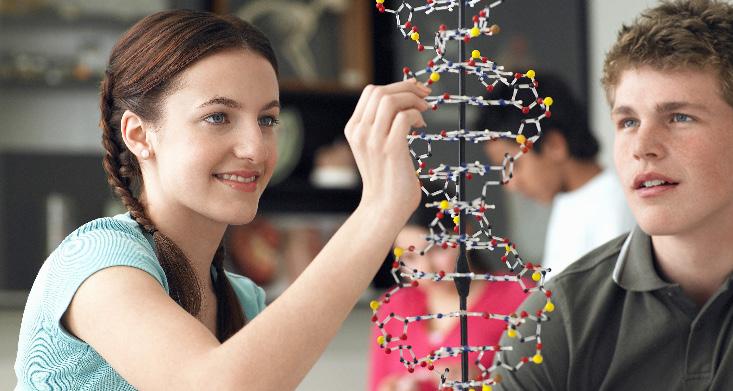
Year 12 course outline
Biology, not just the study of Life, but the study of people and how the amazing body functions and fits within the natural world. Through detailed study of biological molecules and cells, students will learn about the common chemistry and features shared by all life on Earth and how this provides indirect evidence for evolution. They will also learn how survival in any environment is only possible because organisms are able to move substances across membranes and exchange them with the environment. Lastly, students will gain a deeper understanding of how the genetic diversity, that arises from mutations in DNA, enables natural selection to create the biological diversity that has made the natural world so complex, beautiful and intriguing.
Year 13 course outline
Building biological knowledge and scientific skills, students will gain a deeper appreciation of the importance of continuous transfers of energy to all life. They will learn the means by which organisms detect and respond to change in both their internal and external environments and study population genetics, evolution and ecosystems, gaining a greater understanding of the common chemistry of physiological pathways and the universality of the genetic code. Differences in the DNA ultimately lead to the evolution of new species and students will learn about the factors that affect their success. The control and expression of the genetic code continues to be explored at the cutting edge of science. They will learn about the epigenetic regulation of gene expression, how humans are discovering means to control it and use it in many medical and technological applications. Students will also gain an appreciation of the use of DNA technology in the diagnosis and treatment of many human diseases.
Students will enjoy an ecological field trip to explore a variety of habitats, observe local wildlife and design qualitative ecological assessments. They will develop a deeper understanding of the natural world, the interdependence of life and the precarious balance that it struggles to maintain.
Students will attend lectures, and read beyond the limits of your specification. To achieve the highest marks in Biology, they must show passion and interest beyond the pages of their textbook.
Minimum of grade 6 in GCSE Biology or 7-7 in Combined Sciences: Trilogy.
Assessment of practical skills will be by written exams only, but there will be a separate endorsement of practical skills which will be taken alongside the A-level. Teachers will assess their students’ competence at carrying out practical work, awarding a pass for students who achieve mastery level, which is required for students who go on to become undergraduates in science subjects at university.
There are 12 required practical activities and students can expect questions in the exams to be written with these as context.
A level Paper 1: Unit 1-4, 2 hrs, 91marks, 35% of A level
A level Paper 2: Unit 5-8, 105 hrs, 91 marks, 35% of A level
A level Paper 3: All content, Practical skills, 2 hrs, 78 marks, 30% of A level
Higher education courses linked to the subject
Having studied Biology at A level, students will be able to study Biology at degree level as well as Agricultural Science, Biomedical Sciences, Biochemistry, Medicine, Nursing, Dentistry, Earth Sciences, Environmental Sciences, Forensic Science, Anatomy, Pharmacology, Toxicology, Sport Science, Physiotherapy and Veterinary Science.
Careers linked to the subject
Possible career options include Research scientist, Pharmacologist, Biologist, Doctor, Nurse, Ecologist, Nature conservation officer, Biotechnologist, Forensic scientist and many roles in pharmaceuticals and Government agencies.
For more course information, please contact our Admissions Department at admissions@lvs.ascot.sch.uk
Level: BTEC / Examination board: Edexcel
Specification: BTEC Level 3 Extended Certificate in Enterprise and Entrepreneurship

Year 12 course outline
The course is equivalent to 1 A Level and consists of 4 units studied over 2 years.
Unit 1: Enterprise and Entrepreneurs
Unit 2: Developing a Marketing Campaign (Externally Assessed)
Year 13 course outline
Unit 3: Personal and Business Finance (Externally Assessed)
Unit 7: Social Enterprise
Examinations and externally assessed tasks
Unit 2: Controlled and timed in Class Assessment based on research materials released 1 day in advance
Unit 3: 2 hour formal written exam
Opportunities beyond the classroom
Focus on real world businesses and entrepreneurs
• External visits to organisations such as Wimbledon or Coca Cola
• Talks and discussions with business professionals and entrepreneurs
Course requirements
Five GCSEs in grade 4 - 9, with GCSE Business preferred.
Higher Education courses linked to the subject
Many business-related courses are linked to the course content. These include Business and Administration, Chartered Accounting, Marketing, Project Management and Business Law.
Possible careers linked to the subject
Possible career paths include entrepreneurship, management, marketing and sales and events management, investment, retail etc.
Get in touch
For more course information, please contact our Admissions Department at admissions@lvs.ascot.sch.uk
Level: A level / Examination board: Edexcel
Specification: A level 9BS0

Year 12 course outline
Theme 1: Marketing and people (HR).
Theme 2: Managing business and activities (Finance and Operations).
Year 13 course outline
Theme 3: Business decisions and strategy.
Theme 4: Global business.
Opportunities beyond the classroom
• Reflect today’s global world with a focus on the current global issues that impact on businesses
• A pre-released context for A level to enable students to investigate an industry or market in which businesses operate
• All assessments based on real businesses, real problems and real opportunities
• External visits to businesses such as Coca Cola and BMW to experience operations and converse with business professionals
• Talks from and discussions with Business Professionals and Entrepreneurs
Course requirements
Five GCSEs in grade 4 - 9, with GCSE Business preferred.
Examinations
A level Paper 1: 35%
Marketing, People and Global Business (pulls from Themes 1 and 4) – Written Exam: Duration 2 Hours.
A level Paper 2: 35%
Business activities, decisions and strategy (pulls from Themes 2 and 3) – Written Exam: Duration 2 Hours.
A level Paper 3: 30%
Investigating business in a competitive environment (pulls from all 4 Themes) – Written Exam based (partly based on a Pre-Release research topic): Duration 2 Hours.
Higher education courses linked to the subject
Having studied Business at A level students will be able to study Business Studies, Chartered Accounting, Corporate Finance, Marketing, Human Resource Management, Business Administration, Economics, Financial Analysis, Project Management, and Business Law.
Careers linked to the subject
Possible career options include management, accounting and finance, HR management, marketing and sales, law, economics, events management, entrepreneurism, stock broking and investment, retail, etc.
As an international student I thoroughly enjoyed learning the technical language and its application in the business world.
Tom
For more course information, please contact our Admissions Department at admissions@lvs.ascot.sch.uk
Level: A level / Examination board: AQA
Specification: A level 7405

Year 12 course outline
Physical Chemistry 1: Atomic structure, Amount of Substances, Bonding, Energetics, Kinetics, Equilibria, Redox Reaction.
Inorganic Chemistry 1: Periodicity, Group 2: The Alkaline Earth Metals, Group 7: The Halogens.
Organic Chemistry 1: Introduction to organic Chemistry, Alkanes, Halogenoalkanes, Alkenes, Alcohols, Organic Analysis.
Year 13 course outline
Physical Chemistry 2: Thermodynamics, Rate equation, Electrode potentials and electrochemical cells, equilibria.
Inorganic Chemistry 2: Acids and bases, Periodicity, Transition metals, Reactions of ions in aqueous solution.
Organic Chemistry 2: Aromatic chemistry, Amines, polymers, Amino acids proteins and DNA, Organic synthesis and analysis, Nuclear magnetic resonance, Chromatography.
Opportunities beyond the classroom
Students are encouraged to become a member of Chemnet, which is part of the Royal Society of Chemistry. There will be lectures relating to the subject during the year - in both the Sixth Form lectures and the general audience Smalley Lectureswhich will broaden their understanding of the application of Chemistry. Students also have the chance to undertake project work to explore their own interest as part of the essay where students are asked to read the New Scientist.
Course requirements
Grade 6 GCSE in Chemistry or 7-7 in Trilogy. Grade 7 GCSE in Maths and study of Maths at A level is desirable.
Assessment
Coursework
No coursework but 6 nominated practicals to be completed and assessed for Practical Endorsement.
Examinations
A level Paper 1: Physical, inorganic chemistry and practical skills, 2 hrs, 105 marks, 35% of A level
A level Paper 2: Physical, organic chemistry and practical skills, 105 hrs, 105 marks, 35% of A level
A level Paper 3: Content, Practical skills, 2 hrs, 90 marks, 30% of A level
Higher education courses linked to the subject
Having studied Chemistry at A level students will be able to study Chemistry, Analytical Chemistry, Chemical Engineering, Biochemistry, Forensic Science, Pharmacology, Natural Sciences, Toxicology and Environmental Science amongst many others.
Careers linked to the subject Chemistry is an essential entry requirement for medicine, dentistry, veterinary studies and medical sciences.
Get in touch
For more course information, please contact our Admissions Department at admissions@lvs.ascot.sch.uk
Level: A level / Examination board: AQA
Specification: A level 7517

Section 1 covers topics such as fundamentals of programming (C#) and data structures, systematic approach to problem solving and theory of computation. Section 2 covers data representation, computer systems, fundamentals of computer organisation and architecture, consequences of the use of computing and communication and networking.
Three units providing a firm foundation for the study at university. Topics cover programming, data structures and algorithms together with the theory of computation. Section 2 covers Data representation, consequences of use of computer systems, networking, databases and big data. Functional programming and systematic problem solving are covered in context within a project.
beyond the classroom
Computer Science is relevant to the changing world of computing and to the higher education community who value computational thinking and problem solving skills. Students will broaden their awareness of the computing industry and understand the implications of new technological developments and there are many local IT companies for work experience. The project, started at the end of Year 12, provides a useful example of work for interviews. Students may take additional qualifications in specific areas such as the Microsoft MTA and there are opportunities to enter the Computing Olympiad and other competitions and lectures with Computer Science departments of various universities.
Course requirements
Five GCSEs in grade 4 - 9 including Maths at grade 6 or above. GCSE Computing studies preferred.
Assessment
Paper 1: on screen, 2 hours 30 minutes (40%)
Paper 2: Algorithms and Programming comprising compulsory short answer and extended answer questions, 2 hours 50 minutes (40%)
Coursework: Problem solving and applying programming skills in a major project (20%)
Higher education courses linked to the subject
The course provides a thorough knowledge of the technical aspects of computers and enables students to develop programming skills which are essential for many degree courses in science and engineering. Computer Science combines with a range of other subjects as diverse as Art and Physics leading to areas such as computer games, system management and engineering. Computer Science is a valuable component for many careers, providing a firm foundation for further study at University or to go directly into the IT industry. Being comfortable with the technology to support future learning and retraining will be essential. There is a strong demand from business for both Computer Science graduates and people with Computing skills and knowledge.
Careers linked to the subject
Computer Science is a core component for careers such as technical support and software development, computer games, system management and engineering. There is a strong demand from business for people with computing skills and knowledge in areas such as marketing or combatting cybercrime.
Get in touch
For more course information, please contact our Admissions Department at admissions@lvs.ascot.sch.uk
Level: BTEC / Examination board: Pearson
Specification: Foundation Diploma (510GLH)

Course outline
Learners study the digital processes, techniques and skills needed to progress within this dynamic sector. The qualification of communication and planning skills needed for further study of the creative media sector. Learners work in teams and individually to develop media projects in areas such as film, design and publishing.
There are four units of mandatory content where learners study how to:
• analyse media to better understand audiences and clients
• communicate and present their ideas
• plan and prepare media projects
• develop the skills to work effectively in teams
The optional production units introduce learners to various media sectors and genres and enable them to make an informed choice when looking to progress to the next stage of learning.
Opportunities beyond the classroom
• Trips to Sky Academy
• Lecture visits to the BFI Southbank
• Whole school media projects, clubs and competitions
Course requirements
Five GCSEs in grade 4 - 9.
Assessment
There are six units to be completed in total with two consisting of externally marked components.
Coursework
Four coursework units must be completed but there is flexibility in the area chosen with everything from Magazine Design to Fictional Film production on offer.
External assessments
Exam: one two hour exam on Media Representations
Controlled assessment: Responding to a Commission
Higher education courses linked to the subject Media Studies, Communication Studies, Film Studies, Marketing, Animation, Digital Media, Advertising, Film Production and Cinematography, Scriptwriting.
Careers linked to the subject
Applications developer, broadcast journalist, digital marketer, editorial assistant/editor, film/TV producer, newspaper journalist, media planner, researcher or distributor, sound technician.
The BTEC option for media has been great. I have really enjoyed the variety of topics and the fact that there is so much flexibility and independence in the course. We are supported at every stage but so much freedom to be really creative.
Kate
For more course information, please contact our Admissions Department at admissions@lvs.ascot.sch.uk
Level: Level 3 Diploma / Examination board: WJEC/Eduqas
Specification: 2015
Year 12 course outline
Unit 1: Changing Awareness of Crime
Students develop an understanding of different types of crime, influences on perceptions of crime and why some crimes are unreported.
Unit 2: Criminological Theories
Students explore the difference between criminal behaviour and deviance and the theories behind why people commit crime.
Year 13 course outline
Unit 3: Crime Scene to Courtroom
Students gain an understanding of the criminal justice system from the moment a crime has been identified to the verdict. They develop the understanding and skills needed to examine information in order to review the justice of verdicts in criminal cases.
Unit 4: Crime and Punishment
Students apply their understanding of the awareness of criminality, criminological theories and the process of bringing an accused to court in order to evaluate the effectiveness of social control to deliver criminal justice policy.
Opportunities beyond the classroom
Educational visits to see speakers who are experts in various areas of criminology as well as a potential visit to a real life courtroom.
Course requirements
Five GSCEs in grade 4 - 9.

Assessment
Coursework
Year 12 – Unit 1: Changing Awareness of Crime (25% of total mark)
Year 13 – Unit 3: Crime Scene to Courtroom (25% of total mark)
Examinations
Year 12 – Unit 2: Criminological Theories (25% of total mark)
Year 13 – Unit 4: Crime and Punishment (25% of total mark)
Higher education courses linked to the subject
The main purpose of the qualification is to support access to higher education degree courses, such as: Criminology, Criminology and Psychology, Law with Criminology, Criminology and Sociology.
Careers linked to the subject
An understanding of criminology is relevant to many job roles within the criminal justice sector, including police officers, probation and prison officers, and social workers. Criminology graduates are also attractive to employers outside the criminal justice sector in areas such as social research and politics.
Get in touch
For more course information, please contact our Admissions Department at admissions@lvs.ascot.sch.uk
Level: A level / Examination board: AQA
Specification: A level 7262
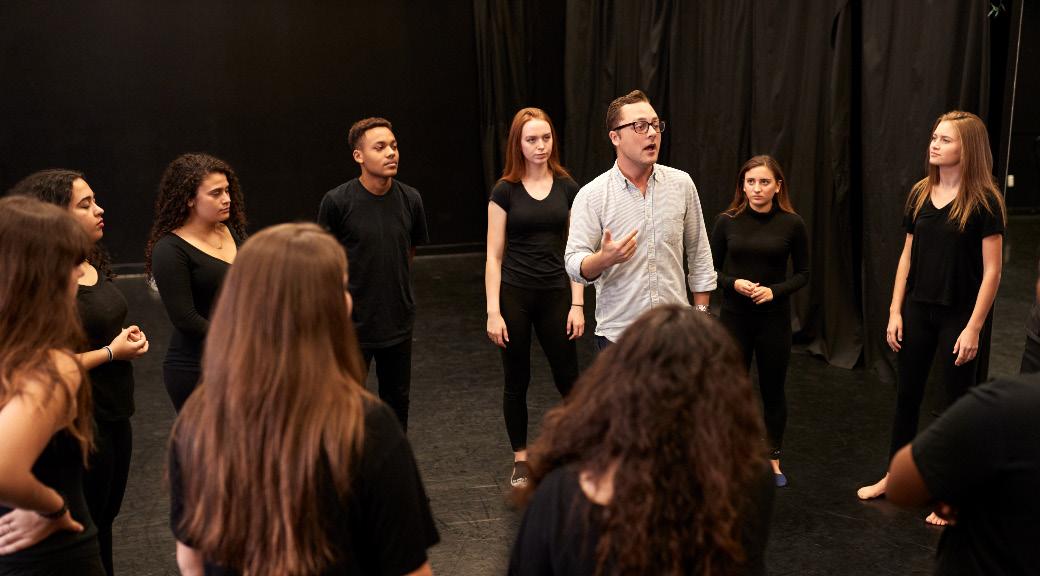
Students will develop their knowledge and understanding of drama and theatre through performance and design. Candidates will explore and perform 2 plays and learn about a range of theatre practitioners. They will study one set play, understanding historical and social aspects of the original performance. Students will also visit and learn to evaluate live theatre.
Year 13 level course outline
Students will perform a play using the influence of a practitioner, and will devise and perform their own original production. They will also study a further set play, learning how to direct it and lift it from page to stage, understanding performance and technical elements.
Opportunities beyond the classroom
• Students are given the opportunity to go to a broad and varied range of theatre performances
• Performing Arts trip offered to New York, to extend and challenge students experience and understanding of theatre in a broader context
• Opportunities to take professional theatre workshops
• Students can take part in acting or backstage in everything from major school productions to house drama competitions
Course requirements
Five GCSEs in grade 4 - 9.
Assessment
Component 1: Drama and theatre
What’s assessed:
• Knowledge and understanding of drama and theatre
• Study of two set plays, one from List A and one from List B
• Analysis and evaluation of the work of live theatre makers
How it’s assessed:
• Written exam, 3 hours
• Open book
• 80 marks, 40% of A Level
Questions:
• Section A: one question (from a choice) on one of the set plays from List A (25 marks)
• Section B: one three-part question on a given extract from one of the set plays from List B (30 marks)
• Section C: one question (from a choice) on the work of theatre makers in a single live theatre production (25 marks)
Component 2: Creating original drama (practical)
What’s assessed:
Process of creating devised drama
• Performance of devised drama. Students may contribute as a performer, designer or director. (Devised piece must be influenced by the work and methodologies of one prescribed practitioner)
How it’s assessed:
• Working notebook, 40 marks
• Devised performance, 20 marks 60 marks in total, 30% of A Level
This component is marked by teachers and moderated by AQA.
Component 3: Making theatre (practical)
What’s assessed:
• Practical exploration and interpretation of three extracts (extract 1, 2 and 3), each taken from a different play. (Methodology of a prescribed practitioner must be applied to Extract 3. Extract 3 is to be performed as a final assessed piece. Students may contribute as a performer, designer or director)
• Reflective report analysing and evaluating theatrical interpretation of all three extracts
How it’s assessed:
• Performance of Extract 3, 40 marks
• Reflective report, 20 marks
60 marks in total, 30% of A Level
This component is marked by AQA.
Higher education courses linked to the subject
Having studied Drama at A level students will be able to study Drama, Performing Arts, Dramatherapy, Film Studies, Media Studies, Stage Management. Assist students who wish to audition for Drama School.
Possible career options include actor, set designer, lighting designer, theatre director, playwright, stage management, costume designer, barrister, human resources, teacher, broadcasting, journalism and any career that requires creativity and high level inter personal skills.
Get in touch
For more course information, please contact our Admissions Department at admissions@lvs.ascot.sch.uk
Level: A level / Examination board: Edexcel
Specification: A level 9EC0
Year 12 course outline
Theme 1: Introduction to Markets and Market Failure (Microeconomics)
Theme 2: The UK Economy – Performance and Policies (Macroeconomics)
Year 13 course outline
Theme 3: Business Behaviour and the Labour Market (Microeconomics)
Theme 4: A Global Perspective (Macroeconomics)
Opportunities beyond the classroom
• Reflect on today’s global world with a focus on the current economic issues and controversies
• Debates on developing political and economic developments
• Research into expanding areas such as the work of the Behavioural Insights Team (linking to Psychology and Anthropology)
• External visits to the Bank of England and Economics conferences to understand the role of Economics and to experience and be part of the key debates
• Talks from and discussions with Economists and Examiners
Course requirements
Five GCSEs in grade 4 - 9.

Examinations
Year 12
Internal Exams based on AS Papers 1 and 2.
A level Paper 1 (35%): Markets and business behaviour (pulls from Themes 1 and 3) – Multiple Choice and Written Exam: Duration 2 Hours.
A level Paper 2 (35%): The national and global economy (pulls from Themes 2 and 4) – Multiple Choice and Written Exam: Duration 2 Hours.
A level Paper 3 (30%): Microeconomics and Macroeconomics (pulls from all 4 Themes) – Written Exam: Duration 2 Hours.
Higher education courses linked to the subject
Having studied Economics at A level students will be able to study Politics, Statistics, Business Studies, Chartered Accounting, Corporate Finance, Economics, Financial Analysis and Engineering, History.
Careers linked to the subject
Possible career options include management accounting and finance, banking and insurance, marketing and sales, law, economics, entrepreneurism, stock broking and investment, public finance, retail.
Get in touch
For more course information, please contact our Admissions Department at admissions@lvs.ascot.sch.uk
Level: A level / Examination board: Edexcel
Specification: A level 9ETO; A2 (9ETO)

Advanced level English Literature provides the opportunity to study a wide range of texts - including poetry, prose and drama - from different periods. As well as the literary texts, students will read supporting material to develop their understanding and appreciation of different writers, periods and genres. The course will help them to develop the valuable transferable skills of essay writing, critical analysis, sustained research and independent study.
Students are encouraged to develop their own interest in and enjoyment of literature and literary studies. They will have the opportunity to:
• Read widely and independently, studying the set texts and others they have selected for themselves
Engage creatively and critically with a range of texts
• Develop and apply their knowledge of literary analysis and evaluation both in speech and writing
• Explore the contexts of the texts they are reading and others’ interpretations of them
• Deepen their understanding of the changing traditions of literature in English
Students will study poetry, drama and prose:
• Poetry: a selection of poetry from an anthology of post2000 poetry, Poems of the Decade: An Anthology of the Forward Books of Poetry 2002-2011
• Drama: a play from the prescribed list (either tragedy or comedy)
• Prose: two novels from a chosen theme
Students will study poetry, drama, prose:
• Poetry: a selection of post-2000 poetry (see AS course outline); and a literary period or a named poet within a literary period; revise poetry from Year 12
• Drama: one Shakespeare play and one other drama from either tragedy or comedy; and critical essays related to the Shakespeare play; revise drama text from Year 12 Prose: two novels from a chosen theme
• Coursework: two texts linked by theme, movement, author or period. The texts may be selected from poetry, drama, prose or literary non-fiction
Opportunities beyond the classroom
The A level course will be supported by a number of events depending on availability such as: theatre visits, study days, exhibitions, Sixth Form literary conferences.
Course requirements
Students are expected to achieve grade 6 in English Language and English Literature at GCSE or IGCSE.
Assessment structure
Advanced level students will complete three examinations at the end of two years (Paper 1: Drama; Paper 2: Prose; Paper 3: Poetry).
Higher education courses linked to the subject
A good command of English is essential for success in all the professions and a good Advanced level grade will be required for those wishing to study English at university. English Literature can be studied as a single subject in higher education or it can be combined with a wide variety of other subjects. It can also provide a good foundation for degree courses in related subjects, for example: creative writing, journalism, media, drama and history.
linked to the subject
Similarly, a wide range of careers such as writing, journalism, advertising, publishing, teaching, marketing, public relations, and arts administration would use the skills acquired in studying English Literature.
The school is considering the introduction of an English Language/Literature course. If this is of particular interest to you please contact the Head of English for further details.
For more course information, please contact our Admissions Department at admissions@lvs.ascot.sch.uk
Level: A level / Examination board: Pearson
Specification: BTEC level 3

The Pearson BTEC International Level 3 qualifications in Esports are designed for learners in the 16–19 age group, who wish to pursue a career in esports via higher education to access graduate entry employment with businesses, and those who are looking to progress into employment
What do these qualifications cover?
The content of this qualification has been designed to support progression to particular roles in esports, either directly into entry-level roles linked to these occupational areas or, more likely, via particular higher-education routes in the particular areas.
The qualification content has been designed in consultation with employers, professional bodies and higher-education providers to ensure that the content is appropriate for the progression routes identified.
All learners will be required to take mandatory content that is directly relevant to progression routes in all of the identified areas. In addition, learners take optional units that support the progression route identified in the qualification title.
For example, learners taking the qualification as part of a work based learning qualification for esports could take units such as:
• Live-streamed Broadcasting
• Esports Events
Learners looking to follow a coaching or teaching route could take units such as:
• Psychology for Esports Performance Nutrition for Esports Performance
• Corporate Social Responsibility in Sport
Additionally, learners could choose units that relate to a number of roles in the sector but which contribute to their understanding of those roles in a vocational context, such as:
• Esports Enterprise Launch
• Customer Immersive Experiences
Course requirements
Five GCSEs at grade 4 - 9.
How is the course structured?
Mandatory units: There are seven mandatory units, of which four are assessed using a Pearson Set Assignment. Learners must complete and achieve a Pass or above in all mandatory units
Optional units: Learners must complete four optional units
Mandatory units:
1 Introduction to Global Esports – set assignment, GLH 60
2 Esports Skills – internal assessment, GLH 60
3 Esports Strategies and Analysis – internal assessment, GLH 60
4 Market Research for Start Up Business – set assignment, GLH 60
5 Enterprise and Entrepreneurship in the Esports Industry –set assignment, GLH 60
6 Health and Wellbeing for Esports Players – set assignment, GLH 60
7 Esports Events – internal assessment, GLH 120
Optional units:
8 Ethical and Current Issues in Esports – set assignment, GLH 60
9 Live-streamed Broadcasting – internal assessment, GLH 60
10 Esports Branding – internal assessment, GLH 60
11 Video Production – internal assessment, GLH 60
12 Games Design – internal assessment, GLH 60
13 Business Applications of Esports in Social Media – internal assessment, GLH 60
14 Shoutcasting – internal assessment, GLH 60
15 Esports Coaching – internal assessment, GLH 60
16 Psychology for Esports Performance – internal assessment, GLH 60
17 Nutrition for Esports Performance – internal assessment, GLH 60
18 Corporate Social Responsibility in Esports – GLH 60
19 Esports Law – internal assessment, GLH 60
20 Esports Enterprise Launch – internal assessment, GLH 60
21 Customer Immersion Experiences – internal assessment, GLH 60
22 Computer Networking – internal assessment, GLH 60
Level: Project / Examination board: AQA
Specification: 7993

The Extended Project is an independent research-based qualification, for which students investigate a topic about which they are passionate. It is the process they follow that is assessed, rather than just the outcome. Students work with a personal supervisor to develop the necessary skills of research and critical analysis for their investigation. The product of their idea may be an evidence-based written report or a practical artefact; the options are very flexible. It is completed with presentation to a non-specialist audience and an evaluation of their learning of both the topic and their study skills. At LVS the programme is offered to all students in Year 12 and is completed in one year. Find out more >
Students receive at least 30 hours of taught skills covering research skills and project management, covering the following:
• What is the EPQ? – Structure, assessment objectives, roles of candidate, supervisor and centre coordinator, choosing a topic, different products, developing ideas
• Developing the project – using the production log, reflective writing, creating working titles, aims and objectives, writing a project proposal
• Keeping yourself and others safe – ethics in research, safeguarding and risk assessments
• Finding resources – types of resource, effective searching, use of academic material, source evaluation, recognising bias, critical engagement with material, effective note-taking
• Project management – setting objectives, planning tools, documenting progress
• Primary data collection – questionnaires, interviews and analysis
• Plagiarism, referencing and bibliographies
• Structuring an argument & essay planning
• Academic writing – style, proof reading and editing
• Presentation skills – planning and delivery
• Evaluation and reflection
In addition, all candidates complete the online FutureLearn course Developing Your Research Project from the University of Southampton, taking 1 hour per week for 8 weeks during the Autumn term of Year 12 to work through the course.
Outside of taught lessons students are expected to complete at least 90 hours of independent work to complete their projects. This is self-directed and can take any for relevant to their project, with the ethical and safeguarding guidance offered by the course.
The EPQ is entire coursework based and requires students to produce either a 5000-word essay or an artefact of some description accompanied by a report of no less than 1000 words. Both must be based on academic research and fully referenced. In addition, a production log or project journal must be completed throughout the process outlining plans, decision-making and reflecting on choices. A presentation, in a format of the candidate’s choice, must also be made to a non-specialist audience.
Higher education courses linked to the subject
The Extended Project is highly valued by universities as it develops the independent study skills required for higher education. The course can be invaluable for the university application process, with some institutions giving reduced offers if students have an A8 or A at EPQ. The qualification is worth half an A-level in UCAS points.
The EPQ develops a range of skills such as critical thinking, problem solving and project management which are useful in every career path.
For more course information, please contact our Admissions Department at admissions@lvs.ascot.sch.uk
Level: A level / Examination board: WJEC/Eduqas
Specification: For teaching from 2017

Course outline
Film is one of the main cultural innovations of the 20th century and a major art form of the last hundred years. The WJEC Eduqas specification is designed to introduce A level learners to a wide variety of films in order to broaden their knowledge and understanding of film and the range of responses films can generate.
A level Film Studies is designed to enable students to explore:
• a diverse range of film, including documentary, film from the silent era, experimental film and short film
• the significance of film and film practice in national, global and historical contexts
• film and its key contexts (including social, cultural, political, historical and technological contexts)
• how films generate meanings and responses
• film as an aesthetic medium
• the different ways in which spectators respond to film
The Media Studies course is based on three main topics:
• varieties of film and filmmaking
• global filmmaking perspectives
• creating media products
Course requirements
Five GCSEs in grade 4 - 9. GCSE English preferred.
Assessment method
Coursework
Component 3: Production
• Non-exam assessment
• 30% of qualification
This component assesses one production and its evaluative analysis. Learners produce:
• either a short film (4-5 minutes) or a screenplay for a short film (1600-1800 words) plus a digitally photographed storyboard of a key section from the screenplay
• an evaluative analysis (1600 - 1800 words)
Written examinations
Paper 1: Component 1 - Varieties of film and filmmaking
Written examination: 2½ hours
• 35% of qualification
This component assesses knowledge and understanding of six feature-length films:
• Section A: Hollywood 1930-1990 (comparative study)
• Section B: American film since 2005 (two-film study)
• Section C: British film since 1995 (two-film study)
Paper 2: Global filmmaking perspectives
• Written examination: 2½ hours
• 35% of qualification
This component assesses knowledge and understanding of five feature-length films (or their equivalent):
• Section A: Global film (two-film study)
Section B: Documentary film
• Section C: Film movements – Silent cinema
• Section D: Film movements – Experimental film (1960-2000)
Post 16 opportunities and careers
Film Studies is a well-respected A level which is fully recognised by all universities for its analytical and communicative nature. It could be combined very successfully with Creative Digital Media Production BTEC, English, History, Drama and Psychology.
Get in touch
For more course information, please contact our Admissions Department at admissions@lvs.ascot.sch.uk
Level: AS/A level / Examination board: Edexcel
Specification: Linear
Further Mathematics A level is studied with Mathematics A level and provides a double A level qualification in Mathematics.
Generally, students will complete their Mathematics A level in the first year of study and the Further Mathematics in their second year.
The course consists of Pure Mathematics, Mechanics, Statistics and Decision at a higher level of complexity than the standard Mathematics A level.
Opportunities beyond the classroom
Students are afforded the opportunity to take part in both regional and national Mathematic Challenges generally held at a local university.
Course requirements
This course is designed for mathematically able students who have both an interest and natural fluency for mathematics and have achieved a grade 8/9 in their GCSE Mathematics examination or equivalent.
Assessment
A level students are assessed by examination only and sit three two hour papers at the end of the second year.
Higher education courses linked to the subject
It is aimed at those students who wish to go on to either study Mathematics, Engineering, Economics, Computing or any subject with significant mathematical content at University.
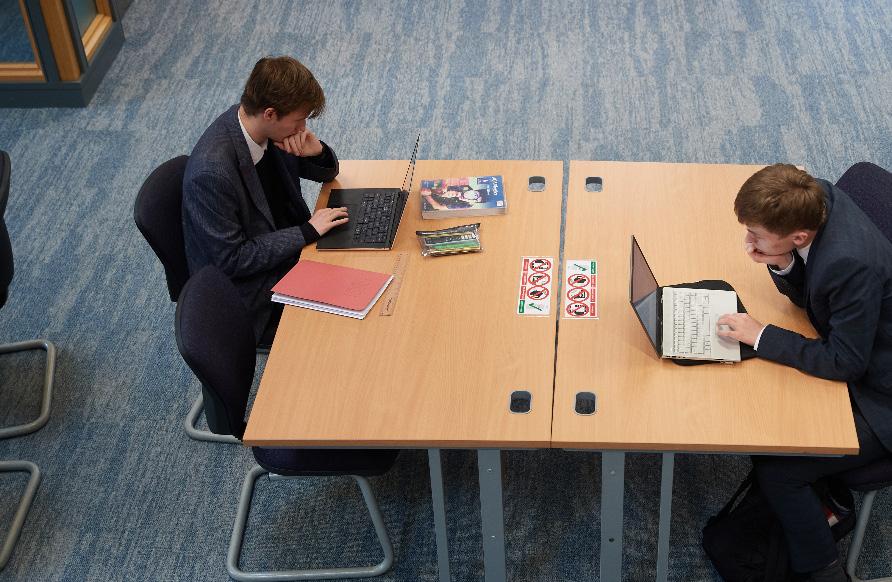
Careers linked to the subject
Students completing Further Mathematics at A level will normally follow careers in the engineering, financial, computing or educational sectors.
We selected Further Maths because we love solving difficult algebra-based problems because it helps to develop logic. We enjoy the breadth of subjects studied including Pure Maths, Mechanics, Statistics and Decision Making. These are particularly helpful in supporting our studies on other courses such as Computing and Physics. Martin and Xingchen
For more course information, please contact our Admissions Department at admissions@lvs.ascot.sch.uk
Level: A level / Examination board: OCR
Specification: H481
Year 12 course outline
Landscape Systems (coasts), Changing Spaces; Making Places, Earth’s Life Support Systems, Student Investigation, Geographical Skills.
Year 13 course outline
Student Investigation, Geographical Debates, Global Connections (Migration and Human rights), Geographical Skills.
Opportunities beyond the classroom
Students attend online and face-to-face lectures given by leading universities along with additional day field trips and one day revision courses throughout the two years. The four day residential trip for independent investigation is an important part of the course.
There is an opportunity to participate in trips abroad with the Department. These vary from year to year but Iceland and South Africa have been organised over a number of years. In 2023 we will be embarking on our first environmental protection and conservation trip to Greece.
A level Geographers are well suited to become school eco ambassadors and help with the school eco awards.
Course requirements
Five GCSEs in grade 4 - 9. GCSE Geography preferred.
Assessment
Examinations
Candidates take three examinations and complete a coursework element.
Component 01 Physical systems: 22% of A level –1 hour 30 minutes examination, written paper, 66 marks
Component 02 Human Interactions: 22% of A level –1 hour 30 minutes examination, written paper, 66 marks
Component 03 Geographical Debates: 36% of A level –2 hour 30 minutes examination, written paper, 108 marks
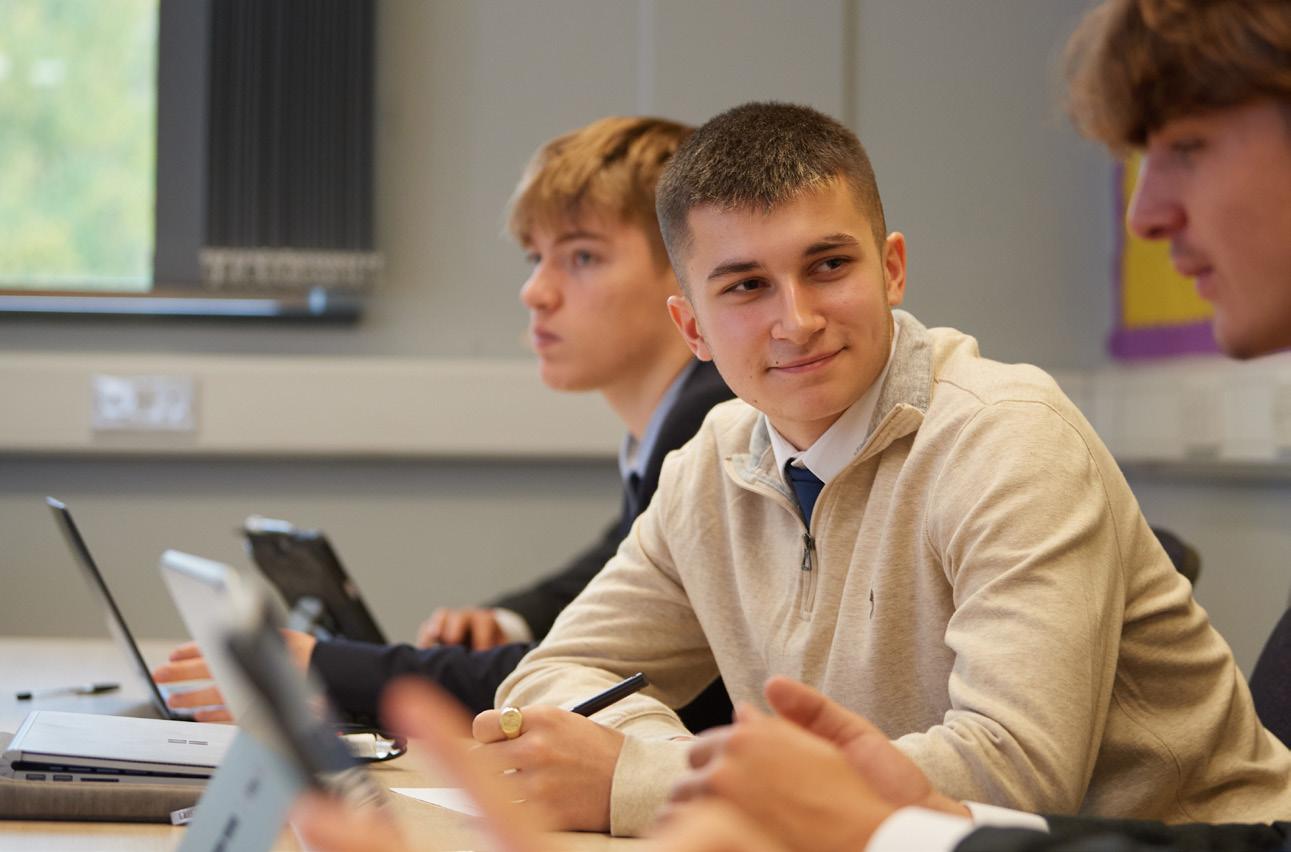
Coursework
Component 04 Investigative Geography: 20% of A level –Non-examination assessment by the school.
Higher education courses linked to the subject ‘More than ever we need Geographer’s skills and foresight to help us learn about our planet – how we use and how we abuse it.’
Michael Palin
‘Geography is a subject which holds the key to the future.’
Michael Palin
Geography is a ‘facilitating subject’, meaning that it is preferred by universities. Universities and employers see geography as a robust academic subject rich in skills, knowledge and understanding. Geography can complement most subjects.
Careers linked to the subject
Geography is a popular subject and leads to a variety of career opportunities, having one of the highest rates of graduate employment in a wide range of careers. Some of the most recent degrees offered include geo-management and geographic Information systems.
The wide range of current topics covered in Geography make the lessons interesting and transferable. The residential trip was a highlight.
Sasha
Get in touch
For more course information, please contact our Admissions Department at admissions@lvs.ascot.sch.uk
Level: A level / Examination board: OCR
Specification: A level H505
History helps the student to understand the world that they are growing up in. Rather than being asked what happened (students will never be asked to describe events), candidates will be asked to think critically about sources and historical questions.
Candidates will learn to question, compare and justify their ideas. As a result classwork will regularly include discussion and debate. Beyond this, students will learn how to analyse historical sources and then to structure their arguments in well-organised and clearly explained analytical essays.
Course outline
There are three examined units and one piece of coursework in the OCR specification that we follow. In Year 12, students study eighteenth century America (The American Revolution and the establishment of the United States of America), along with a study of Britain 1900-1951. In Y13, students study how civil rights for African Americans, Native Americans, trade unions and labo(u)r organisations and women changed over the period of 1865-1992 and also complete a c.3500 word piece of coursework on an aspect of the Y12 American Revolution unit that is of particular interest to students, that they want to research further.
Course requirements
Five GCSEs in grade 4 - 9. GCSE History preferred.
Opportunities beyond the classroom
The A level History Society offers weekly extension documentaries and discussions (as well as very good cakes). The library has a range of further reading texts, and in addition LVS Historians will have the opportunity to attend specialist lectures and debate online against another school.

Assessment
Students will be assessed by examination at the end of the course. In addition, they will be expected to write a 3,000 to 4,000 word piece of coursework. This will be on a topic of their choosing from the Y12 American Revolution unit. Students should be reassured that they will get guidance and support throughout the year with this work.
Higher education courses linked to the subject
A level History is a highly regarded qualification that can open up many opportunities. The student will develop skills in research, evaluation and analytical writing. As such, universities and employers look favourably upon applicants with the qualification. It is required for undergraduate courses such as history and archaeology, and it is desirable for law and classics.
Careers linked to the subject
Career possibilities from having A level History include being a teacher, museum curator, excavator, researcher and lawyer. History is also a common way into working in media and journalism. The biggest employer of graduate historians is the finance sector.
You learn to challenge everything – that’s the great thing. If in doubt ask why.
Harry
For more course information, please contact our Admissions Department at admissions@lvs.ascot.sch.uk
Level: A level / Examination board: OCR
Specification: Law H418

Course outline
A-Level Law provides students with a general understanding of the English legal system and a grounding in the principles of its criminal law, tort law and human rights law.
The study of law equips students to think critically. The main assessed skills are the ability to explain, evaluate and question key legal ideas in essays, and the ability to apply legal rules from statute and case law to fictional scenarios.
Law needs to be learnt carefully and thoroughly, but its practice is dynamic and varied. Students will develop oracy through discussion and debate as well as analytical writing skills. This process will equip them with valuable skills and confidence for adult life and give them an idea of some of the key qualities required in professional legal practice.
In Year 1, students will learn the basic principles of the English legal system and some of the key topics of criminal and tort law. In Year 2, this knowledge will be consolidated and developed and students will also learn about human rights law.
Course requirements
Five GCSEs in grade 4 - 9.
Opportunities beyond the classroom
Law is an evolving discipline and industry. There are many opportunities to research legislation, legal judgements and developments online. Visits to court and student seminars will also be promoted.
Assessment
Students will be assessed by examination at the end of the course. There are no coursework requirements.
Higher education courses linked to the subject Law is both an academic and vocational discipline. Students studying law will get a head-start with some of the required elements of a law degree or law conversion course. Studying Law at A-level develops critical thinking and knowledgemanagement skills which will also facilitate a range of academic courses such as History, English Literature, Economics and the Social Sciences.
linked to the subject
For many students, A-Level Law is the starting point on a route into a legal career, for example as a corporate lawyer, a legal researcher, a solicitor or a barrister. A knowledge of the law is also a useful pre-requisite for careers in areas as varied as human resources, estate agency and the police.
in touch
For more course information, please contact our Admissions Department at admissions@lvs.ascot.sch.uk
Level: A level
Specification: CTH Level 3 Extended Certificate

Leiths CTH Level 3 Extended Certificate in Professional Cookery
Course outline
This course is a hands-on practical cookery qualification which is designed for students who are looking for a career in the food industry. The course is 5 terms long and is based around 45 core weeks of practical menus which develop a wide range of culinary skills.
This course is also brilliant for those simply wanting to expand and explore different cooking methods and cuisines. The course not only carries between 12-36 UCAS points but is also a great starting point for students who want to open doors into the food industry.
Course requirements
A knowledge of basic cooking skills would be essential. A drive and enthusiasm for preparing, cooking and tasting new flavours and ingredients is also advantageous.
Assessment method
The course is marked on a week by week basis through an interactive and online portal. Practicals are tasted and marked at the end of every lesson, and evidence is then uploaded to the online platform. Coursework is also uploaded onto this platform and is marked by the teacher and then also by the Leiths Academy team.
The final grade is awarded on the basis of two final practical cooking exams, a food hygiene exam and also a menu planning project task.
Alongside the practical element of this course students will also gain a level two online food hygiene and allergen certificate, this will allow students to work within a variety of food establishments.
With this qualifications, students can advance onto university courses, students can also open the door to part time work, gap year travel work and a range of other jobs within the food and hospitality industry. Leiths Academy is linked to the renowned school, Leiths School of Food and Wine and this qualification has the potential to inspire students to take on roles in the catering industry. Leiths Academy also supports students through the ‘Leiths employment agency, Leiths List, which helps graduates from this course secure opportunities for employment.
in
For more course information, please contact our Admissions Department at admissions@lvs.ascot.sch.uk
Level: AS/A level / Examination board: Edexcel
Specification: Linear

The Mathematics A level is a two-year linear course consisting of Pure Mathematics, Mechanics and Statistics, with students studying all three topics.
The pure elements of the course include Algebra, Calculus and Trigonometry and provide the students with the tools needed for solving problems. The Statistics and Mechanics elements apply these techniques in real world contexts.
Students who wish to take an AS qualification after one year may do so, but this does not count towards their final A level grade.
Opportunities beyond the classroom
Students are afforded the opportunity to take part in both regional and national Mathematic Challenges generally held at a local university.
Course requirements
This course is designed for competent mathematical students who have interest and natural fluency in mathematics and in particular algebraic manipulation. In order to take the course, students must have achieved at least a grade 7 in their GCSE Mathematics examination or equivalent.
Assessment
A level students are assessed by examination only and sit three two hour papers at the end of the second year.
AS level students will sit two 90 minute papers at the end of one year.
Higher education courses linked to the subject
Mathematics A level is a qualification sought by many top universities for almost any technical or academic degree course. In particular, it is specifically relevant for Science, Engineering, Computing and Finance-based courses.
Careers linked to the subject
Students completing Mathematics at A level can go on to follow almost any career but in particular in the applied science, business and financial, IT and educational sectors.
I enjoy working through problems in a logical way and I find it fascinating that Maths can be applied to so many situations. For example, having studied Mechanics as part of Maths, I have found Physics to be much easier as it has helped me understand why things act as they do.
Georgia
For more course information, please contact our Admissions Department at admissions@lvs.ascot.sch.uk
Level: A level / Examination board: AQA
Specification: A level 7172
AQA Philosophy is divided into four topics, two studied for Paper 1 and the other two for Paper 2.
Topic 1: Epistemology – investigating various theories of knowledge, the relationship between what we can and cannot know and the impact of this relationship on our individual existence.
Topic 2: Moral Philosophy – studying how we decide what is morally correct by exploring Utilitarianism, Aristotle’s virtue ethics and Kant’s deontology while concurrently debating the status of ethical language and the validity of ethical claims.
Year 13
Topic 3: Metaphysics of God – considering and critically analysing various arguments for and against God’s existence while debating numerous issues surrounding the validity and use of religious language.
Topic 4: Metaphysics of Mind – looking into the relationship between mind and body, various theories including dualism and monism, the issue of qualia and a debate as to whether or not ‘philosophical zombies’ exist.
Opportunities beyond the classroom
Extra-classroom opportunities include visits to relevant lectures and theatre productions with philosophical content.
Course requirements
Five GCSEs in grade 4 - 9.

Assessment
Examinations
The two-year course is divided into four units. Though there is no formal coursework component, the nature of Philosophy demands and expects a good deal of reading and writing. The two papers are each three hours in length.
Higher education courses linked to the subject
In addition to further study at university, Philosophy is an excellent foundation for any subject. Recent students have gone on to pursue courses in courses in Philosophy, Politics and Economics (PPE), History, English, Mathematics, Physics, Computing and Psychology.
Careers linked to the subject
Studying Philosophy is of great value in and of itself and, because of the transferable skills students acquire through the A level, the course can well-equip a student for any profession, subject or course requiring creative and careful thought.
Studying Philosophy enables me to better understand the bigger picture –to see how history, religion and political science are all interconnected.
Amy
Get in touch
For more course information, please contact our Admissions Department at admissions@lvs.ascot.sch.uk
Level: A level / Examination board: Edexcel
Specification: PH01
The Photography course will allow students to develop practical, experimental and expressive skills within Photography.
Following an in depth technical induction into Photography and Adobe Photoshop, students will follow a creative process to expand their knowledge of the subject and developing their personal ideas into exciting outcomes. Students will work in a supportive environment allowing them to reach their full potential and create exciting, individual work. The A level course includes an extended dissertation of 2000 to 3000 words. The A level course is an art-based Photography course that requires creativity and imagination.
The school enters external competitions to give students the opportunity to have their work exhibited locally and nationally.
Students will be encouraged to partake in a range of trips to galleries and exhibitions to gain a greater understanding of Art in a wider context. These recording trips will help to develop their skills through drawing and photography. We try to work with artists and designers where possible both in school and out.
Course requirements
Five GCSEs in grade 4 - 9. GCSE Art or Photography preferred.
Assessment
Coursework
60% coursework – 40% ESA (Externally set assignment).
Examinations
15 hour controlled assessment – practical exam.
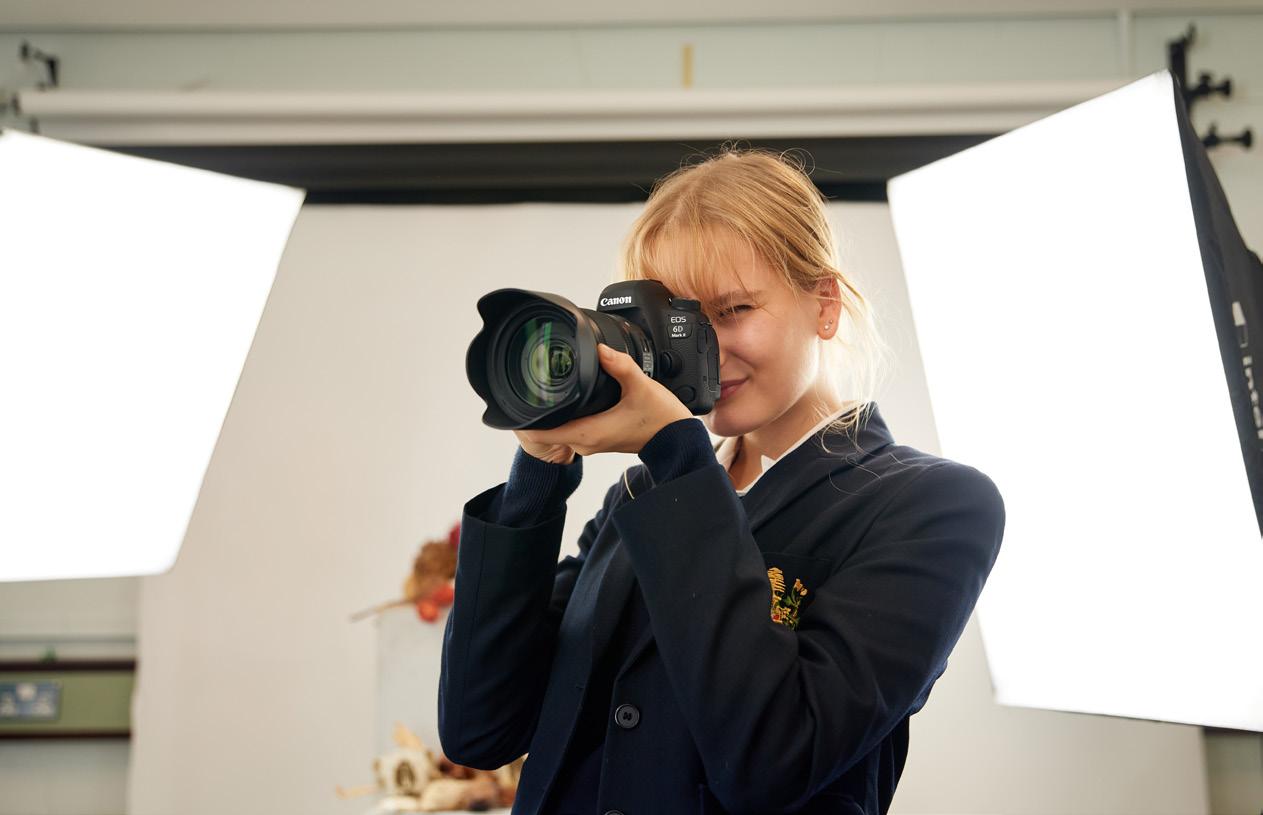
Many students take a one year Art Foundation course or are offered a place on a creative degree course. These courses allow them to specialise in a specific subject area such as Architecture, Fine Art, Photography, Film Media or Television, Set Design or Fashion Design to name but a few.
linked to the subject
Possible career options include animator, architect, arts therapist, ceramic designer, fashion designer, fine artist, furniture conservator, furniture designer, games developer, graphic designer, illustrator, product designer, Interior/ special designer, jewellery designer, make-up artist, medical illustrator, museum/gallery conservator, photographer, press photographer, printmaker, production designer –film/television/theatre, textile designer or web designer.
The photography course has provided me with a great working environment giving me the foundation of skills needed and the opportunity to have creative freedom over my own ideas. I feel as though the department, teachers and course created a great working environment over the two years and produced the best work out of the students.
Sam
For more course information, please contact our Admissions Department at admissions@lvs.ascot.sch.uk
Level: A level / Examination board: AQA
Specification: 7582
Year 12 course outline
Anatomy and physiology, skill acquisition, sport and society and analysis of performance.
Year 12 course content
Section A: Applied anatomy and Physiology (SMR)
Section B: Skill Acquisition (NJC)
Section C: Sport and Society (PHC)
Year 13 course outline
Biomechanics, applied exercise physiology, sports psychology, technology and analysis of performance.
Year 13 course content
Section A: Exercise physiology and biomechanics
Section B: Sports Psychology
Section C: Sport and society and technology in sport
Written NEA: Analysis of performance in one sport
Opportunities beyond the classroom
There are many opportunities for our students to experience classroom based learning in a practical arena. In the past we have run trips to elite performance centres, such as St. Georges Park, where students have the opportunity to put what they learn in the classroom into practice and be instructed by the top coaches and sports Scientists in the world. We also encourage our students to complete coaching and refereeing courses to broaden their CV and open opportunities for them in other fields of sport. In addition, we encourage and attend elite sport matches dependant on students’ interests.
Course requirements
Grade 6 in Physical Education or a Merit in Level 2 BTEC Sport.
Assessment
Component 1: Factors affecting participating in physical activity and sport
Written paper, 2 hours
• Combination of multiple choice, short answer and extended writing questions
• 105 marks, 35%
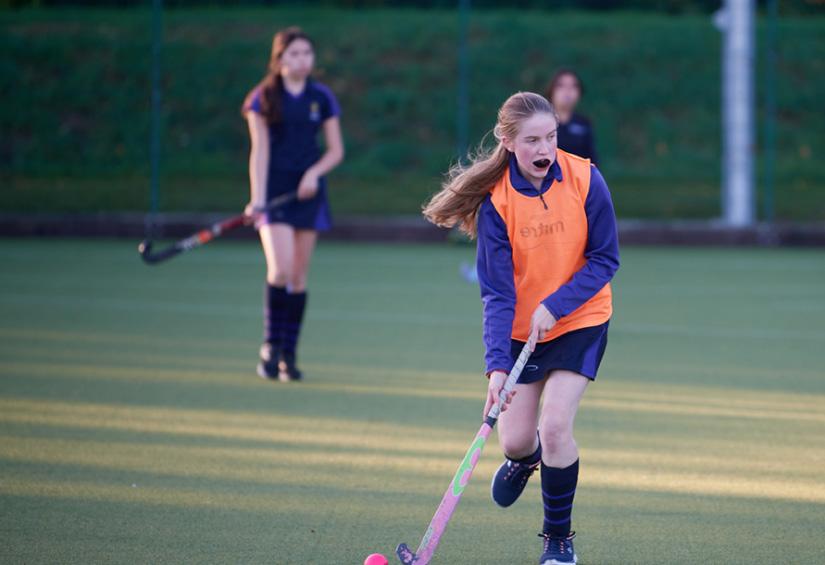
Component 2: Factors affecting optimal performance in physical activity and sport
Written paper, 2 hours
• Combination of multiple choice, short answer and extended writing questions
• 105 marks, 35%
Component 3: Practical performance in physical activity and sport
• Non-exam assessment
Internal assessment external moderation
• 90 marks, 30%
Higher education courses linked to the subject
Having studied PE at A level students will be able to study Sports Science, Physiotherapy, Sports Studies, Physical Education, Sports Therapy, Sports Coaching.
Careers linked to the subject
Possible career options include nutritionist, sports performance analyst, sports coach, PE teacher, sports therapist, personal trainer.
The course is so varied there is something for everyone. I enjoyed learning about the contemporary side of sport such as what is currently in the news and also the science behind sport.
Jonny
For more course information, please contact our Admissions Department at admissions@lvs.ascot.sch.uk
Level: A level / Examination board: AQA
Specification: A level 7408
Physics is a challenging and exciting study of the Universe from the smallest to the largest scale. Such knowledge is basic to scientific progress. A Physics student will be distinguished as a numerate and scientifically competent member of society in a world where these skills are increasingly important.
Year 12 course outline
• Measurements and their errors
• Particles and Radiation
• Waves
• Mechanics and Energy
• Electricity
Year 13 course outline
• Further Mechanics and Thermal Physics
• Fields
• Nuclear
• Physics
Plus one option from:
• Astrophysics
• Medical Physics
• Engineering Physics
• Turning Points in Physics
• Electronics Opportunities beyond the classroom
There will be lectures relating to the subject during the year – in both the 6th Form lectures and the general audience Smalley Lectures, which will broaden students’ understanding of the application of science. There will be more opportunities in the course, to develop their experimental skills, an essential feature of higher education in Physics and Engineering. There are also opportunities to visit establishments for visits and lectures as well as places to find challenging and demanding work experience placements.
Course requirements
Grade 6 in GCSE Physics or 7-7 in Trilogy. GCSE Maths at grade 7 and study of Maths at A level is desirable.
Assessment
Coursework
No coursework but 6 nominated practicals to be completed and assessed for Practical Endorsement.

Examinations
Paper 1: Content, Units 1-5 + Periodic motion, 2 hrs, 85 marks, 34% of A level
Paper 2: Content, Units 6-8, 2 hrs, 85 marks, 34% of A level
Paper 3: All content, Practical skills, Data analysis, Optional topic, 2 hrs, 80 marks, 32% of A level
Higher education courses linked to the subject
Aeronautical Engineering, Agricultural Science, Astronomy, Engineering, Medicine, Computing, Environmental Science, Forensic Science, Marine Science, Oceanography, Pharmacy and Radiography amongst many others.
Careers linked to the subject Physics is the study of the fundamental laws of nature. In this course students will learn a wide range of skills useful for further study of Physics and Engineering, as well as an excellent grounding in numeracy and analysis, highly prized in many careers. A level Physics is a very useful qualification and can lead to a very wide range of careers. Careers, involving the direct application of physics, include applied physics, astrophysics, geophysics, material technology, forensic science, engineering, meteorology, medical physics. Physics A level is also seen as essential or highly desirable for intended careers in medicine, mathematics, computing, business, finance, accountancy, law and many more areas.
I think that physicists can do pretty much anything. Our training can be applied to almost any activity, and it allows us to see things in a way that might not be obvious to others.
Simon Singh, science writer and broadcaster
Get in touch
For more course information, please contact our Admissions Department at admissions@lvs.ascot.sch.uk
Level: A level / Examination board: AQA
Specification: A level 7181/7182

Course outline
This course provides students with a broad introduction to Psychology as a Science. The core topics are social influence, memory, attachment, psychopathology, approaches in psychology, biopsychology, issues and debates in psychology and research methods.
The emphasis is on applying knowledge and understanding and developing the skills of analysis, evaluation and critical thinking.
As well as being asked to describe the procedures and findings of many key pieces of research, students will be required to think critically about the research itself and suggest ways that it could be improved.
Candidates will learn to question and challenge research findings, suggest the real world applications of research and be able to justify their ideas. As a result class work will often take the form of discussions and debates and will occasionally involve smallscale investigations. There is also a heavy emphasis on essay writing within each topic.
In addition, students select topics to be covered in the second year. These include: relationships, gender, cognition and development, schizophrenia, eating behaviour, stress, aggression, forensic psychology and addiction.
Course requirements
Five GCSEs in grade 4 - 9. 6 in GCSE Biology or 6-6 in Trilogy preferred.
The LRC at LVS Ascot has a range of further reading texts, journals and online resources. In addition, LVS Psychologists will have the opportunity to attend specialist revision conferences led by examination experts.
Assessment
Students will be assessed by examination at the end of the course. There are no coursework requirements.
Higher education courses linked to the subject
Students with an A level in Psychology would be well suited to any of the following courses - Psychology, Criminology with Psychology, Psychology with Business, Psychology with Marketing or any course with an element of counselling or therapy.
Careers linked to the subject
All of the following are excellent Psychology based careers that require further training on completion of a suitable degree programme - educational psychologist, counselling psychologist, sports and exercise psychologist, forensic psychologist, clinical psychologist and neuro psychologist.
Not only is it an enjoyable and interesting subject, psychology has also helped me massively with my essay writing skills, memory and relaxation techniques.
At the start of Year 12 I had no idea what I wanted to do but I soon fell in love with the subject and I am now studying it at university.
Ashleigh
For more course information, please contact our Admissions Department at admissions@lvs.ascot.sch.uk
Level: A level / Examination board: AQA
Specification: A Level 7191/7192

Course outline
A Level Sociology looks at social issues such as why inequality happens, the nature of our society and how to understand society. The course focuses on developing an understanding of the world around us, the ideas and concepts of different sociological theories and a critical understanding of the society we live in.
The course develops these critical analysis skills through comparison and evaluation and in reference to contemporary materials. It also looks at the ways in which sociologists test various theories through research methods.
Course requirements
Five GCSEs in grade 4 - 9.
Assessment
Students will be assessed by examination at the end of the course. There are no coursework requirements.
Careers linked to the subject
Sociology lends itself to careers in journalism, the law, political research, social work, teaching, marketing, and many other areas. The skills taught in sociology at A-level are transferable and beneficial to many career choices.
Get in touch
For more course information, please contact our Admissions Department at admissions@lvs.ascot.sch.uk
Level: BTEC Level 3 National Diploma
Examination board: Edexcel / Specification: 2017 Diploma

Course information
BTECs embody a fundamentally learner-centred approach to the curriculum, with a flexible, unit-based structure and knowledge applied in a project-based assessment. They focus on the holistic development of the practical, interpersonal and thinking skills required to be able to succeed in employment and higher education.
Year 12 course outline
Unit 1: Anatomy and physiology (External exam in January)
Unit 2: Fitness training (External exam in June)
Unit 3: Professional development (internal coursework assessment)
Unit 4: Sports leadership (internal coursework assessment)
Unit 18: Work experience in active leisure (internal coursework assessment with practical industry experience)
Year 13 course outline
Unit 22: Investigating business in the Sport and Active Leisure Industry (external exam in January)
Unit 23: Skill acquisition in sport (internal coursework assessment)
Three optional units could be, but are not limited to: (there are a total of 22 to choose from)
• Application of fitness testing
• Sports psychology
• Practical sports performance
• Sports event organisation
Opportunities beyond the classroom
External speakers come in a deliver seminars on certain topics, such as careers in sport, fitness testing. Opportunities to attend Surrey Sports Park to take part in professional fitness testing. Work experience is encouraged in the sporting industry.
Course requirements
Grade 6 or above in GCSE PE or Merit or above in BTEC Sport Level 2 are advantageous but not essential. An interest in sport and fitness is essential.
Assessment
Coursework
55% (6 Units*)
Examinations
45% (3 Units*)
*units are weighted differently
Higher education courses linked to the subject
Having studied BTEC Sport students will be able to study Sports Science, Sports Studies, PE teaching, Sport and Fitness, Sports Coaching, Sports nutrition, Sports Psychology.
Careers linked to the subject
Possible career options include sports coach, fitness instructor, sports therapist, sports nutritionist, PE teacher, leisure management.
I achieved a double distinction starred in BTEC Sport with the help of the teaching staff keeping me on track. The modular units really suited my learning style. Most people go on to study a Sports Science degree but I’m going to use this on my Product Design degree.
Marc
For more course information, please contact our Admissions Department at admissions@lvs.ascot.sch.uk
Level: A level / Examination board: Edexcel
Specification: A level 9TE0

Textile design is a versatile discipline that involves the creation, selection, manipulation and application of a range of materials and processes in order to produce fabrics for different purposes.
Students will develop a wide range of skills and create personal work responding to a range of artists, designers and educational visits. They will be encouraged to work independently while having clear guidance and support from the Art Department. The A Level course also includes an extended piece of writing of 1500 - 3000 words.
The school enters external competitions to give students the opportunity to have their work exhibited locally and nationally.
Students will be encouraged to partake in a range of trips to galleries and exhibitions to gain a greater understanding of Art in a wider context. These recording trips will help to develop their skills through drawing and photography. We try to work with artists and designers where possible both in school and out. We also encourage students to take part in an annual life drawing workshop.
Course requirements
Five GCSEs in grade 4 - 9.
Assessment
Coursework
60% coursework – 40% ESA (Externally set assignment).
Examinations
15 hour controlled assessment – practical exam.
Many students take a one-year Art Foundation course or are offered a place on a creative degree course. These courses allow them to specialise in a specific subject area such a Fine art, Photography, Film and Television, interior design, Set Design or Fashion Design to name but a few.
Careers linked to the subject
Textiles designer, interior designer, fashion designer, print maker, jewellery designer, teacher, Fine artist, furniture conservator, make-up artist, production designer – film/television/theatre, costume designer, fabric technologist, curator, fashion buyer and retailer, gallery director, stylist, trend forecasting, illustrator, journalism, fashion stylist.
I have really enjoyed the wide range of opportunities in the Textiles A level course, from taking part in life drawing to print making and using the heat press, the course has allowed me to build a range of skills and develop my confidence. It has supported my interest in fashion, but has also encouraged me to think outside of this area, seeing Textiles in many other forms.
Nicole
For more course information, please contact our Admissions Department at admissions@lvs.ascot.sch.uk

As an-all ability school, we do not conduct a formal entrance examination. We request reports from previous schools in the Autumn Term prior to entry. Pupils will also be interviewed by senior members of staff.
Although an all-ability school, applicants should be guided by our Admissions Department regarding any learning needs and the level of support the school can offer. We can consider all applicants, including those with mild learning difficulties.
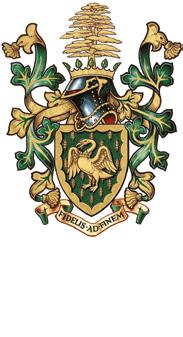
01344 882770
admissions@lvs.ascot.sch.uk www.lvs.ascot.sch.uk

